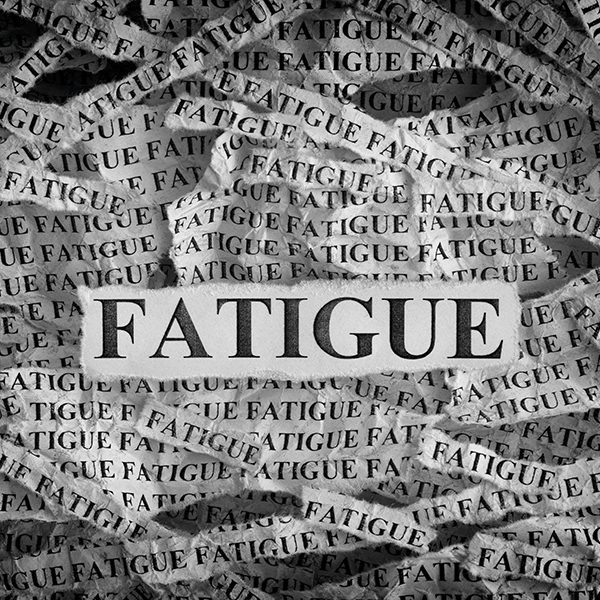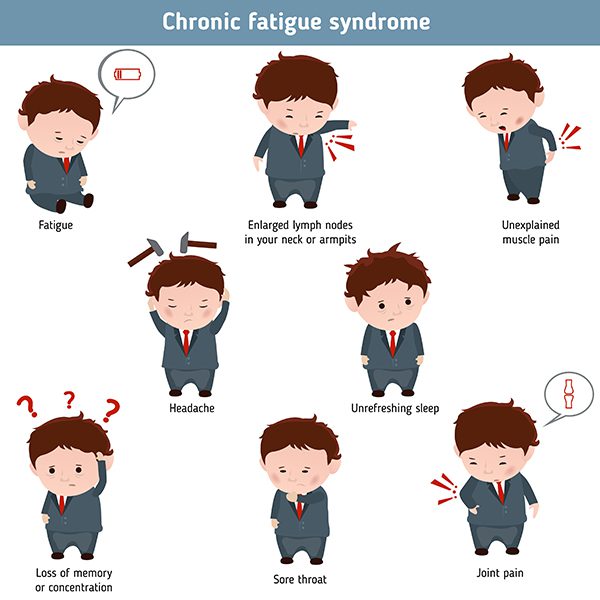What Should You Know About Chronic Fatigue Syndrome?
Chronic fatigue syndrome is an illness that happens due to intense weariness or exhaustion that does not disappear with rest
What Should You Know About Chronic Fatigue Syndrome
Chronic fatigue syndrome is an illness that happens due to intense weariness or exhaustion that does not disappear with rest. Also known as CFS, it is also something that does not happen due to a medical disease. The scientific name of CFS is Myalgic encephalomyelitis (ME).
Previously, some individuals did not consider ME/CFS a genuine sickness. Nevertheless, doctors have begun to put more effort in recent times. They have started researching and finding ways to determine why it occurs and how to cure it.
There are zero tests available for Chronic Fatigue Syndrome. When obtaining a diagnosis, doctors ruled out other possible explanations of the weariness. However, the goal of chronic fatigue syndrome therapy is to relieve pain.
Causes Of Chronic Fatigue Syndrome
The root reasons for CFS are yet to be identified. Some people are prone to the illness from birth, and a set of events later sparks it. And for some, it has appeared from some other causes. Let us look at some examples of possible triggers:
Viral Infections:
Scientists wonder which viruses to blame since some patients get CFS after a viral illness. The Epstein-Barr virus and human herpes virus 6 are both worrisome viruses. However, strong conclusions about the relationship between both these viral infections and CFS are yet to be drawn.
Immune system issues:
Individuals suffering from CFS tend not to have a strong immunity system. However, we cannot base a fact considering a weak immune system as a factor to develop this condition.
Hormonal fluctuations:
Hormones secreted in the midbrain, pituitary organs, and adrenal glands are often unusually high in the blood of people with chronic fatigue syndrome. However, the relevance of these oddities remains uncertain.
Physical or Mental Stress:
Some people claim that their problems with CFS began after an injury, surgery, or a period of intense mental stress. But this needs some clarification too.


Causes Of Chronic Fatigue Syndrom
Factors that can multiply the risk of getting CFS to include:
Age:
Chronic Fatigue Syndrome may strike anyone in any peer group. But, teenage to middle-aged adults are most affected.
Sex:
Women are likelier than males to deal with Chronic Fatigue Syndrome. Nevertheless, this may be just because women mainly share their disorders or concerns with the doctors.
Other conditions that may raise your chances of getting CFS are:
- Genetic Predisposition
- Allergies
- Environmental issues
- Stress
Symptoms of Chronic Fatigue Syndrome
CFS symptoms vary depending on the person and the extremity of the disorder.
A few of the major symptoms are:
Reduced capacity to perform previously possible tasks:
Fatigue is a common symptom of CFS, making it difficult to perform daily chores.
The Fatigue used to be:
- Pretty severe
- Does not get better with relaxation.
- Not due to any activity
- Not present before.
This exhaustion, as well as the associated decrease in exercise levels, must last at least six months to be diagnosed with CFS.
Post-Exertional Malaise (PEM)
Post-exertional malaise is the decline of the symptoms following physical or mental strain. And with CFS, an individual suffering post-exertional malaise will suffer a “collapse” after the physical or psychological activity.
During PEM, they can experience unusual or deteriorating conditions of the body such as:
- Inability to think
- Having trouble sleeping
- A sore throat
- Headaches
- Dizziness
- Exhaustion
These symptoms will differ from person to person. Taking a shower or heading to the grocery shop can sometimes trigger PEM for some individuals.
Sleep Disorders
There are a variety of sleep disturbances that can arise. The person could be tired yet unable to rest. They may not function better after sleeping. In addition, they may also have to deal with:
- Restless Legs
- Night Muscle Cramps
- Vivid Dreams
- Apnea (sleep deprivation)
Difficulties with concentration and memorizing
The following maybe a few other problems for the individuals prone to Chronic Fatigue Syndrome:
- decision-making
- concentrating on specifics
- thinking rapidly and recalling information
These conditions are sometimes referred to as “brain fog.”
Dizziness while standing up
The following symptoms may occur when the person changes from resting on their back to simply sitting or standing:
- dizziness
- lightheadedness
- faintness
- Changes in eyesight, like blurry vision or seeing specks
Some other symptoms
- Normal pain or discomfort without any injury
- Anxiety or Panic Attacks
- Lack of sex drive
- Muscle twitching
- Paralysis
- Seizures
- Chest pain
- Unexplained weight fluctuations
- High-stress levels
- Depression
- Canker sores
- Rashes
- Low-grade fever
- Eye pain
- Irregular heartbeat
- Shortness of breath
- Muscle weakness
- Headaches
- Joint pain without redness or swelling


Diagnosis Of Chronic Fatigue Syndrome
Doctors cannot diagnose CFS easily.
If someone seeks medical care for ME/CFS, a clinician will most likely start the diagnosis by:
- Enquiring about the individual’s symptoms
- Doing a physical test
- Suggesting tests to try to figure out what’s causing the symptoms
To be diagnosed with ME/CFS, a patient must experience these three basic symptoms for at least six months. Furthermore, the doctors would not confidently call this problem out as these are also indicators for the following illnesses.
- Fibromyalgia
- Insomnia
- Hypothyroidism
- Multiple Sclerosis
- High Obesity
- Lyme disease
- Mononucleosis
The adverse effects of certain medicines, including antihistamines, can also resemble CFS symptoms.
Because the signs of CFS and several other disorders are so similar, it’s crucial not to self-diagnose. Discuss your concerns with your doctor. They can assist you in obtaining relief.
Takeaway
Chronic fatigue syndrome is a life-altering illness that can impair all parts of one’s life.
Getting a confirmation can take some time because the signs are not precise and coincide with other disorders. Whether or not an individual has been diagnosed, some lifestyle choices might help them cope with the troubles. And because everyone’s CFS evolves differently, it’s critical to consult with a doctor and develop a plan that suits your specific needs.
Coping strategies will be crucial in treating ME/CFS until researchers uncover a specific treatment. However, you can talk to the doctor and have supplements for the body. It will not only recover any deficiency you have but would also give the necessary boost your body may require. For further information, you can check out Siorai.
